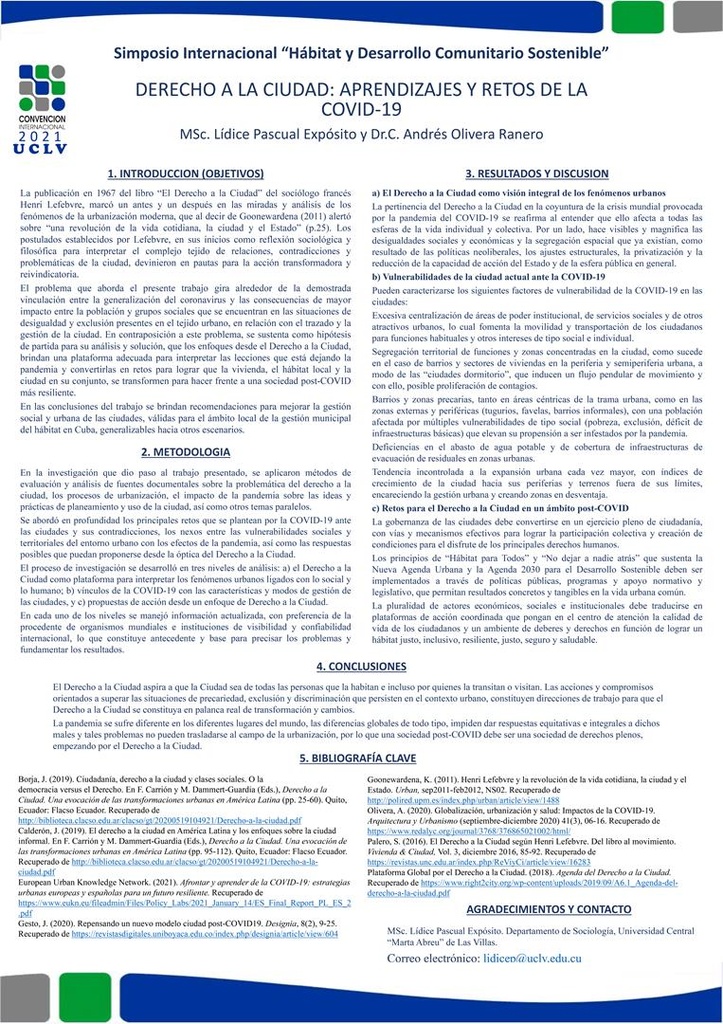Executive Secretary

Simposio Internacional Hábitat y Desarrollo Comunitario Sostenible
HAB-COM 2021

The Right to the City has become the way to build a socially sustainable urban paradigm, broadens in the traditional way to improving the quality of life of people focused on housing and its neighborhood environment, refocusing this objective towards the city scale. This concept, originally the object of sociology and philosophy, has been extended to other fields of study, for instance, in the creation, management and criticism of the urban phenomenon and urbanization processes. The problem raised in the work is based on the relationship demonstrated between the generalization of COVID-19 and the social inequalities present in the city that depend on the layout and urban management. The starting hypothesis recognizes the relevance of the Right to the City approaches to interpret the lessons that the pandemic is leaving and turn them into challenges to ensure that housing, the local habitat and the city as a whole, are transformed in the face of the challenges of a post-COVID society. Recommendations are made to improve the social and urban management of cities, valid for the local level of municipal habitat management in Cuba and generalizable to other scenarios.
El Derecho a la Ciudad ha devenido en vía para construir un paradigma urbano socialmente sostenible, amplía el tradicional enfoque sobre la mejora de la calidad de vida de las personas centrado en la vivienda y su entorno barrial, reenfocando este objetivo hacia la escala de ciudad. Dicho concepto, originalmente objeto de la sociología y la filosofía, se ha extendido hacia otros campos del estudio, creación, gestión y crítica del fenómeno urbano y de los procesos de urbanización. El problema planteado en el trabajo parte de la relación demostrada entre la generalización de la COVID-19 y las desigualdades sociales presentes en el tejido urbano que dependen del trazado y gestión de la ciudad. La hipótesis de partida reconoce la pertinencia de los enfoques del Derecho a la Ciudad para interpretar las lecciones que está dejando la pandemia y convertirlas en retos para lograr que la vivienda, el hábitat local y la ciudad en su conjunto, se transformen frente a los retos de una sociedad post-COVID. Se formulan recomendaciones para mejorar la gestión social y urbana de las ciudades, válidas para el ámbito local de la gestión municipal del hábitat en Cuba y generalizables hacia otros escenarios.
About The Speaker

Lidice Pascual Expósito




